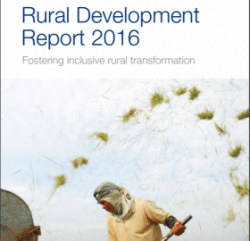
Policy highlights:
- Structural and inclusive rural transformation requires targeted policies. Policymakers should be aware of the specific context, challenges and stage of transformation, as these demand different sets of priorities for policy reform, institutional innovation and investment.
- In addition to describing a large number of measures specific to particular contexts, this report offers more general recommendations. Policymakers should: 1) invest more in agricultural R&D and foster synergies between public and private research; 2) promote the availability, affordability, diversity and quality of food for rural households and in schools; 3) implement targeted measures to enhance gender equality, including training for women, fostering women’s leadership in rural organizations, and empowering women at the household level; 4) strengthen state capacity and accountability for the successful design and implementation of policies; 5) invest in modern communication (and information) technologies; 6) enhance the capacity of rural communities to manage risk by promoting disaster preparedness and response, and prudent risk-taking for livelihood diversification; and 7) foster the sustainable management of natural resources, e.g. through local community control.









